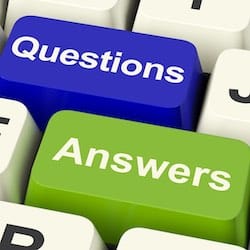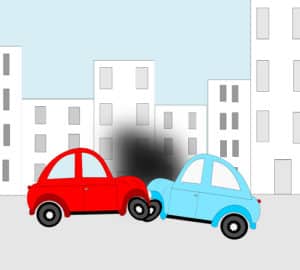What Are No Fault Benefits and What Do They Cover?
If you had a car accident, your medical bills and certain other expenses are covered, provided that you do certain things. Our Bronx no fault lawyer will explain what you need to do to ensure you get no fault benefits.
Medical bills and lost earnings from work can be a source of tremendous stress after an accident. Fortunately, some or all of these expenses, as well others, may be covered under New York’s mandatory No-Fault insurance coverage. Here are some important things you need to know about No-Fault benefits if you were involved in a car accident.
What Are No-Fault Benefits?
No-fault insurance covers medical and hospital bills, lost earnings, as well as other expenses caused by car accidents. This type of coverage is also sometimes referred to as Personal Injury Protection or PIP coverage. No-fault coverage is available to most people injured in a car accident, including drivers, car passengers, pedestrians, bus passengers and bike riders. Specifically, No-Fault insurance covers:
- Up to $50,000 in hospital and medical bills;
- 80% of lost earnings up to $2,000 a month;
- $25 per day, for up to one year following the accident, to reimburse out of pocket expenses related to the accident (hiring a caretaker, pharmacy costs, transportation to doctor appointments, etc.);
- $2,000 in the event of an accident related death, paid to the estate of the covered person.

Involved in a car accident and have a question about no fault benefits? FILL OUT A CASE INTAKE FORM and one of our attorneys will get right back to you.
To be eligible for No-Fault benefits, you are required to file a No-Fault application with the insurance company responsible to pay these benefits within 30 days of the accident. Our Bronx no fault lawyer can help you file this application quickly and efficiently.
Which insurance company is responsible to pay no fault benefits? Here are the general rules:
- Drivers/Passengers must file for benefits with the car that they are in at the time of the accident;
- Pedestrians must file for benefits with the car that strikes them;
- Passengers on buses must file with their own car insurance first, but if they have no available coverage, then the filing is done with the bus company.
How Do I Process My Hospital and Medical Bills With No-Fault?
Once your No-Fault application is filed, and the claim set up, the insurance company will assign you a claim number. The claim number must be provided to your doctor for billing purposes. Medical providers are required to submit their bills to the insurance company within 45 days of the treatment, or the bill may not be paid.
You are entitled to keep receiving medical treatment until the No-Fault insurance company determines that continued treatment is no longer medically necessary. Our Bronx no fault lawyer will explain that the insurance company will hire a doctor to examine you and decide whether you need further medical treatment. If the doctor hired by the insurance company decides that you no longer need additional treatment, the insurance company can legally stop paying your bills.
How Do I Process My Lost Earnings Through No-Fault?
No-fault will reimburse 80% of your lost earnings up to $2,000 per month for up to three years. You are required to file a lost earnings claim within 90 days of the first day you stopped working. Filing for lost earnings is more complicated, though, than processing your hospital and medical bills. To begin with, the insurance company will want to know whether you are self-employed or work for someone else. This is important because you will need different proof for each claim.
If you work for someone else, your employer will need to complete an Employer’s Wage Verification Form (NF6 Form) on your behalf. This form requires basic information about you and your job, your earnings, and the amount of time you have been out of work. In addition to this form, the insurance company will want verification from your doctor that your time out of work is related to the accident.
Once this information is submitted, the insurance will review your claim, and decide whether any other information is necessary to pay your lost earnings. Sometimes, an insurance company will request a hearing, called an examination under oath, to ask you questions about your claim.
If you are self employed, you are required to complete a Self-Employment Verification Form (NF7 Form). This form requires some basic information about your self employment. You will also need to attach supporting documentation to prove the earnings that you claim. For example, the insurance company may request copies of your tax returns, or other proof to verify how much money you were earning before the accident. You will also need to provide documentation from your doctor to prove that you are disabled from work because of the accident.
Not Everyone Is Covered By No-Fault
No-Fault coverage does have some important limitations. Specifically, coverage may not be available if the applicant:
- Intentionally caused one’s own injury;
- Drove while impaired by drugs or intoxicated;
- Committed a felony while driving or was part of a police chase;
- Was part of an illegal street race;
- Operated a known stolen vehicle;
- Occupied or operated a vehicle whose owner’s policy is not compliant with the law;
- Was repairing, servicing, or maintaining a vehicle as part of a job and on business premises. (For example, being injured while doing one’s job as a mechanic).
Bronx No Fault Lawyer | Ask Questions – Get Answers
If you have any questions about No-Fault Benefits and your car accident, call our experienced car accident attorneys by calling (800) 762-9300 or by email . You can also simply fill out one of our case intake forms and we will have one of our attorneys get right back to you.
You Might Also Be Interested In:









